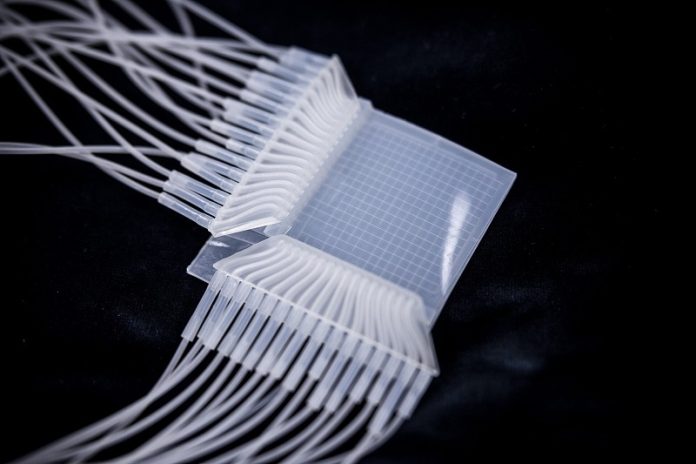
Researchers at Tampere University have created a groundbreaking soft touchpad that can detect force, touch area, and location without using electricity.
Made entirely of silicone, the device works using tiny pneumatic (air) channels, making it perfect for environments where electronic devices might fail or pose risks, like inside MRI machines.
The device, published in Advanced Intelligent Systems, contains 32 small channels, each just a few hundred micrometers wide.
It’s so sensitive that it can recognize handwritten letters and detect multiple touches at once.
This makes it suitable for a wide range of applications, including medical settings and soft robotics.
“Electronic sensors can fail in extreme conditions, like strong magnetic fields.
Since this touchpad doesn’t use electricity, it can function in these environments, such as MRI machines,” explains Vilma Lampinen, a doctoral researcher at Tampere University.
For example, if an MRI scan reveals a cancerous tumor, a pneumatic robot equipped with this touchpad could be guided to take a biopsy while the patient is still being scanned, using the MRI images.
The non-electric nature of the touchpad also means it can be used in areas with high radiation or in situations where a spark of electricity could cause danger.
The flexibility of silicone allows these sensors to be integrated into soft robots and rehabilitation aids, where hard electronics are unsuitable.
Soft robots, often made of rubber-like materials and powered by air, could use this sensor technology to measure touch precisely across their surfaces.
This opens up new possibilities for creating safer, lighter, and cheaper prosthetic hands that can delicately grip objects. Such hands could be valuable in manufacturing, providing a safer alternative to traditional prosthetics.
Wearable devices made from soft materials could also benefit from this technology, providing more comfortable movement aids for rehabilitation. The sensor’s softness would enhance comfort compared to harder devices, improving the overall experience for users.
This innovative touchpad shows great potential for use in fields ranging from healthcare to robotics, offering a safer and more adaptable alternative to traditional electronic sensors.



